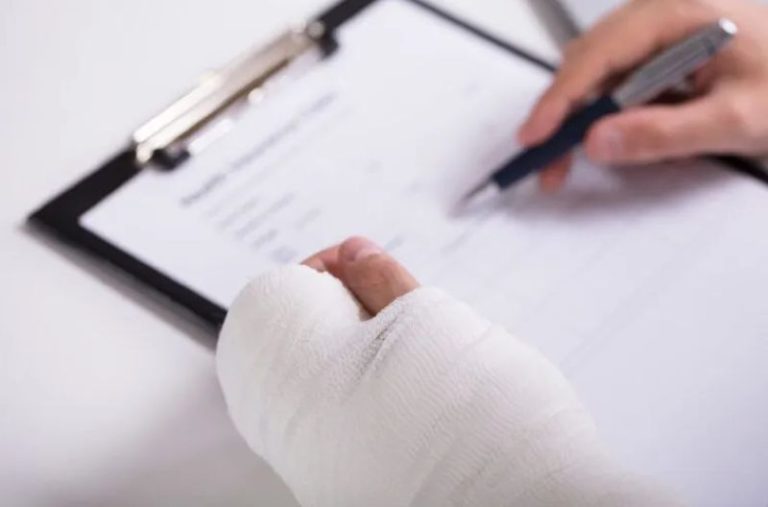

Workplace injuries can happen in any industry. From cuts and bruises to broken bones and even head injuries, accidents can happen. If you’re injured at work, do you know the steps you should take?
Some common mistakes after a workplace injury can affect your ability to file a claim and receive compensation. Yes, worker’s compensation has some strict requirements you don’t want to miss.
Common Mistakes to Avoid After an Accident at Work
Not Reporting an Injury
You may feel like your injury isn’t a big deal. After all, you’re not leaving work in an ambulance. However, even a minor cut can turn into a more serious injury. There’s always the risk of developing an infection. Some injuries also don’t exhibit immediate signs or symptoms.
While New York state law does give employees a grace period to report their injuries, it’s rarely a good idea to wait. You have ten days from the date of the accident to report minor injuries. Severe injuries must be reported immediately; there aren’t any exceptions.
New York also has a statute of limitations for filing an injury claim with worker’s compensation insurance. You have two years from the accident date to file a claim for damages.
Reporting your injury to your employer doesn’t mean discussing it in passing at a morning meeting. A phone call is a start, but you’ll want to follow up in writing. Creating a paper trail detailing the accident and your injuries is the first step toward receiving compensation.
The attorneys from Malloy Law Offices, LLC suggest reporting the accident as soon as possible to ensure there is clear documentation of the incident. Timely reporting helps prevent disputes and strengthens your case when seeking compensation for medical expenses and lost wages.
Forgetting to Seek Medical Attention
Okay, this mistake can seem a little difficult to make. After all, how do you forget to seek medical attention for an injury? If the injury is serious, this mistake is rarely a problem. Almost everyone is going to make an appointment or catch a ride to the E.R. for a major gash or broken bone. However, some minor injuries are easy to ignore, and this is a mistake.
Remember, some minor injuries can turn serious without medical attention. Others take a while to fully develop. When it comes to your health, it’s always best to be proactive. Another reason to seek medical attention is for your worker’s compensation claim.
Without medical documentation, there isn’t any proof you sustained any type of injury, and this means the chances of you receiving compensation are pretty slim. Most insurance companies will simply dismiss your claim without medical proof.
Believing You’re Only Eligible for Compensation if You Miss Work
This mistake is surprisingly common. Employees often don’t understand all of the benefits worker’s compensation provides. Yes, worker’s compensation covers medical expenses and lost wages if your injury results in you missing work. However, you don’t have to miss work for worker’s comp to kick in.
The employer-sponsored insurance covers medical expenses even if your injury isn’t preventing you from returning to work. Even if you don’t seek medical attention until the end of your shift, you can still file a claim. Best of all, there’s a good chance your claim will be approved as long as you have medical documentation.
You Have a Pre-existing Condition
Did you know worker’s compensation also provides coverage for pre-existing conditions? No, the insurance isn’t going to cover your ongoing treatment since this is the responsibility of your healthcare plan. However, if the conditions at work are exacerbating the symptoms associated with your preexisting condition, this is often covered by worker’s compensation. In other words, don’t put off filing a claim.
An example is if you have arthritis and work conditions are making your symptoms worse. In this instance, you can file a claim with worker’s compensation. However, if your employer is aware of your pre-existing condition and is taking every reasonable step to accommodate you, worker’s compensation may not accept your claim.
In situations like this, it’s often best to seek legal advice. This way, you can avoid making this mistake and receive compensation if you’re eligible.
Falsifying Information on a Worker’s Compensation Claim
Making a mistake on the worker’s compensation forms is a fixable error. The insurance provider simply sends your forms back and pauses your claim’s review until you submit the correct information.
However, falsifying information on a worker’s compensation claim can be a crime. The criminal offense can be categorized as insurance fraud, which means you may be facing financial penalties and even jail time. There’s also a good chance of losing your job, and it can be difficult to find an employer willing to take a chance on hiring you.
A common example of falsifying information is to make an injury sound worse than it is. Don’t forget; you’re going to need to prove your injury claim, and it’s difficult to fake medical documents.
Ignoring Your Doctor’s Orders
Congratulations! You’ve avoided a common mistake by seeking medical attention for your workplace injury. Now it’s time to avoid making another common mistake. You must follow all of the doctor’s instructions, regardless of how pointless they may seem.
If your physician’s instructions include refraining from participating in physical labor, don’t start digging a garden at home while you’re recuperating. If your injury worsens because you ignored medical advice, worker’s compensation can deny your claim. This applies to the claim you file for the injury sustained at work.
Not Returning to Work
Not returning to work doesn’t mean showing up the moment you’re released from the hospital. Remember, don’t make the mistake of not following your doctor’s orders. However, you must return to work as soon as it’s cleared by a physician. In other words, you can’t go on collecting worker’s compensation indefinitely.
If you’re medically cleared to return to work and decide to continue collecting worker’s compensation, you may be guilty of insurance fraud. Now, you’re on the hook for the wages you’re being paid under workers’ compensation.
The Best Way to Avoid Mistakes is Talking to an Attorney
If you’re injured on the job, reaching out to a worker’s compensation attorney is a critical step. This specialized legal professional can significantly minimize the risk of errors throughout the claims process, which might otherwise jeopardize your ability to secure full compensation.
An attorney with expertise in worker’s compensation law understands the intricacies of such claims and can guide you effectively, ensuring that all necessary documentation is accurately and promptly filed. Additionally, they can negotiate on your behalf with insurance companies and, if necessary, represent you in legal proceedings.


